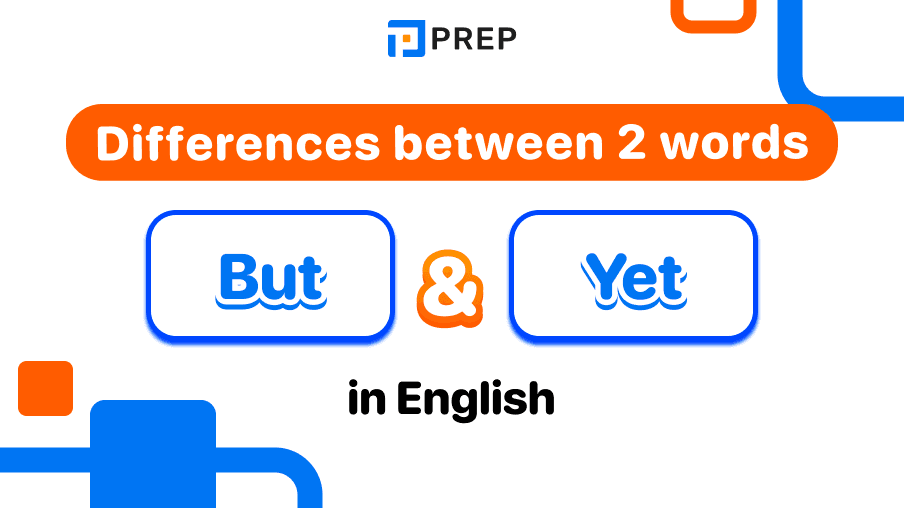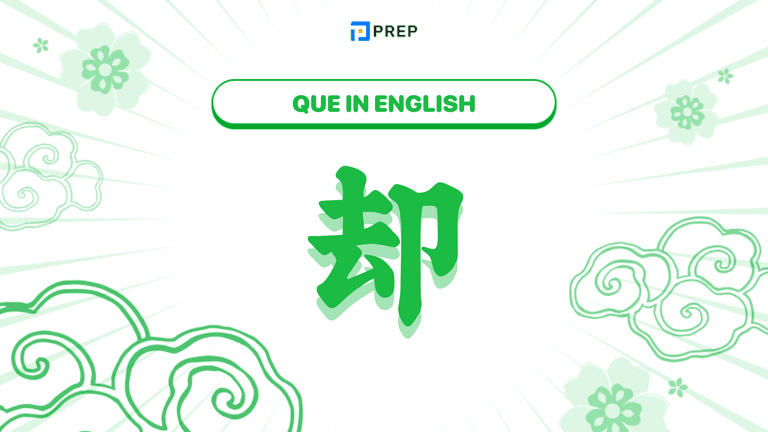But and Yet? Picking the Best Word for Contrast
When crafting English sentences, choosing between but and yet can be challenging. Both signal contrast, but they aren't identical in meaning or impact. Understanding the but and yet difference helps you communicate with greater precision and express exactly what you intend.

I. "But" and "Yet": What's Their Main Job?
Both words in the but and yet pairing introduce statements that contrast with what came before, but they do so with different flavors of opposition.
1. But
"But" functions as the standard coordinating conjunction for introducing straightforward opposition or exceptions. When considering but and yet, think of "but" as equivalent to "however" or "on the other hand" - creating a natural pivot between contrasting ideas without additional implications.
"But" works best when:
-
Pointing out basic differences between statements
-
Presenting expected contradictions
-
Transitioning between positive and negative statements
Example: "I wanted to attend the concert, but I couldn't find tickets." This demonstrates a situation where but and yet are both options, but "but" is the more appropriate choice.
2. Yet
"Yet" as a conjunction in the but and yet pair introduces contrast with an additional layer of meaning. It signals not just opposition but often surprise or persistence despite obstacles. Think of it as similar to "nevertheless" or "in spite of that."
"Yet" shines when:
-
Emphasizing surprising contradictions
-
Highlighting persistence against expectations
-
Stressing the significance of the contrast
-
Creating a more formal tone
Example: "The climb was extremely challenging, yet she completed it without assistance." Here the but and yet difference is clear, as "yet" emphasizes the surprising completion.
II. "But" vs. "Yet": Using Them Right
Let's explore how these conjunctions compare directly and when to choose one over the other when deciding between but and yet.
1. Key Differences: "But" or "Yet" Side-by-Side
|
Feature |
"But" |
"Yet" |
|
Main Use |
General opposition |
Emphasized contrast or unexpected result |
|
Implied Meaning |
Simple contradiction |
Contradiction with surprise |
|
Surprise Level |
Low to moderate |
Moderate to high |
|
Formality |
Neutral, everyday |
Slightly more formal |
|
Emotional Impact |
Straightforward |
Often stronger, more dramatic |
|
Frequency in Speech |
Very common |
Less common |
This table highlights essential aspects of the but and yet difference.
2. Can You Swap Them? When and Why
In many situations, the words in the but and yet pair can be interchanged without changing the basic meaning. However, replacing "but" with "yet" subtly shifts emphasis, suggesting the contrast is more noteworthy or surprising.
Choose "but" when:
|
Case |
Example |
|
The contrast is expected or routine |
She's allergic to cats, but she has a dog. |
|
You want a neutral presentation |
He applied for the job but didn't hear back. |
|
The context is casual |
I wanted pizza but got noodles instead. |
|
The contradiction needs no special attention |
It rained, but the event continued as planned. |
Choose "yet" when:
|
Case |
Example |
|
Something occurs despite significant obstacles |
She was exhausted, yet she kept running. |
|
The contrast genuinely surprises |
He had no experience, yet he got the job. |
|
You want to highlight persistence against opposition |
The odds were against them, yet they succeeded. |
|
The context is more formal |
The proposal faced criticism, yet it was approved unanimously. |
The but or yet decision affects how readers perceive your message.
3. Seeing "But" and "Yet": Quick Examples
Examples with "but":
-
"He studied diligently, but still made mistakes." (Simple contrast between effort and outcome)
-
"The restaurant was expensive, but the food was delicious." (Straightforward balancing of negative and positive aspects)
Examples with "yet":
-
"The recipe seemed impossibly complex, yet she mastered it immediately." (Surprising outcome against expectations)
-
"He has faced numerous setbacks, yet he remains optimistic." (Persistence despite obstacles)
Comparative examples showing but and yet differences:
-
"The task was difficult, but she completed it." (Matter-of-fact)
-
"The task was difficult, yet she completed it." (Implies her completion was impressive)
III. Common mistakes and tips for using but and yet correctly
Let's focus on effective but and yet usage and avoiding common pitfalls.
1. Common Mistakes to Watch Out For
|
Case |
Incorrect |
Correct |
|
Overusing "but" creates choppy writing |
She wanted to go, but it was late. But she didn't care. But the train had already left. |
She wanted to go, but it was late. Still, she didn't care even though the train had already left. |
|
Confusing conjunctive "yet" with adverbial "yet" (meaning "still") |
He yet hasn't finished his homework. |
He hasn't finished his homework yet. |
|
Missing needed commas when joining independent clauses |
I wanted to go but I was too tired. |
I wanted to go, but I was too tired. |
|
Using redundant "but yet" combinations |
I was tired, but yet I continued working. |
I was tired, yet I continued working. |
|
Starting formal writing with these conjunctions may be too informal |
But many believe the policy is flawed. |
However, many believe the policy is flawed. |
These common errors can obscure the but and yet difference you're trying to convey.
2. Simple Tips for Clearer Contrast
-
Use "but" for most everyday contrasts in the but and yet pair
-
Reserve "yet" for strategic emphasis on unexpected elements
-
Read your writing aloud to test which sounds more natural
-
Consider your audience and context when choosing but or yet
-
Focus on selecting the right word for your specific purpose
IV. Practice and Other Meanings (Supplemental Content)
1. Exercise 1: Choose "But" or "Yet"
Instructions: Select either "but" or "yet" to complete each sentence based on the level of contrast and emphasis required. This exercise helps you master the but and yet difference.
The deadline was two days away, _______ the team remained surprisingly calm and focused on delivering quality work.
I don't usually enjoy science fiction movies, _______ I decided to watch this one because my friend highly recommended it.
The recipe calls for fresh basil, _______ dried basil can work as a substitute if you're in a pinch.
He has no formal musical training, _______ he can play six different instruments with remarkable skill.
The weather forecast predicted rain all weekend, _______ we decided to go camping anyway.
The book received mixed reviews from critics, _______ it became a bestseller within its first week of release.
She speaks five languages fluently, _______ she still struggles with basic phrases in Mandarin.
The company faced significant financial challenges last quarter, _______ they managed to avoid layoffs and maintain operations.
Answers:
-
yet (emphasizes the surprising calm despite pressure)
-
but (indicates a simple exception to a general preference)
-
but (presents a straightforward alternative)
-
yet (highlights the impressive ability despite lack of training)
-
but (shows a simple decision despite conditions)
-
yet (emphasizes the surprising success despite critical reception)
-
but (presents a straightforward limitation)
-
yet (emphasizes the impressive achievement despite challenges)
These answers demonstrate the proper application of but and yet in context.
2. Exercise 2: Spot the Best Fit
Instructions: For each pair of sentences, determine which one uses but or yet more effectively for the context.
A) The mountain trail was steep and rocky, but they reached the summit before noon. B) The mountain trail was steep and rocky, yet they reached the summit before noon.
A) I explained the problem clearly, but he still didn't understand the concept. B) I explained the problem clearly, yet he still didn't understand the concept.
A) The task seemed impossible to complete in one day, but the team finished it with time to spare. B) The task seemed impossible to complete in one day, yet the team finished it with time to spare.
A) The restaurant had received poor reviews online, but we enjoyed our meal there last night. B) The restaurant had received poor reviews online, yet we enjoyed our meal there last night.
A) The car is ten years old, but it still runs perfectly without any major issues. B) The car is ten years old, yet it still runs perfectly without any major issues.
Answers:
-
B is more effective. Using "yet" emphasizes that reaching the summit before noon was an impressive achievement given the difficult trail conditions. This demonstrates the but and yet difference in context.
-
A is more natural. The misunderstanding isn't particularly surprising or remarkable, so the straightforward contrast of "but" fits better here. This shows when to use but or yet appropriately.
-
B is more effective. The completion of an impossible-seeming task is surprising and impressive, making "yet" the stronger choice to emphasize this achievement.
-
B works better. The contrast between poor reviews and personal enjoyment is somewhat surprising, making "yet" more appropriate to highlight this unexpected experience.
-
B is more effective. A ten-year-old car running perfectly is somewhat unexpected and noteworthy, making "yet" the better choice to emphasize the car's remarkable longevity.
The distinction between but and yet may seem subtle, but mastering it adds precision to your communication. While "but" handles everyday contrasts efficiently, "yet" brings additional emphasis to surprising or persistent contradictions. By choosing the right option from the but and yet pair, you signal not just the presence of contrast but its nature and significance. This but and yet difference, though small, meaningfully shapes how your message is received, making your English more nuanced and effective when you correctly decide between but or yet.

Hi I'm Chloe, and I am currently serving as an Product Content Administrator at Prep Education. With over five years of experience in independent online IELTS study and exam preparation, I am confident in my ability to support learners in achieving their highest possible scores.
Comment
Premium content
View allPersonalized roadmap
Most read












